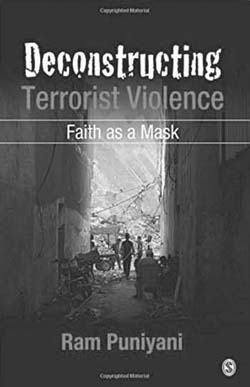Religious nationalism remains an important phenomenon in the last three decades, which has manifested itself in an explicit manner after the fall of the Soviet Union. The books under review seek to study the phenomena of terror and violence unleashed across the globe, which the authors argue, have deep linkages with the advent of religious nationalism.
At the outset, Mark Jurgensmeyer’s argument about the rise of religious nationalism as the new ideology replacing the ideological strife of the Cold War era in terms of intensity may be relevant with reference to the Punyani’s book. The present world order since 9/11 in the USA and the series of terror strikes in countries like India and various European nations highlight the challenges of religious terrorism emanating from religious nationalism.
Also, another important development that bolsters the phenomenon of religion centric terrorism is the overwhelming impact of the globalizing tendencies in the post Bretton Wood world order. They seek a standardization and homogenization in terms of institutions of governance, trying to promote democracy and free market economy as an universal ideology along with the movement of labour and capital.
The works of Ram Puniyani and Vivek Chadha are sincere attempts to unravel the complications and challenges to the secular and liberal social order in the present scenario. The emergence of religious terror as a predominant discourse sometimes is juxtaposed, according to Ram Puniyani, with the majoritarian sentiments backed by the state apparatus to the detriment of the minority community.
The challenges of religious terror are manifold as the authors argue that this phenomenon carries with itself, (a) devastating potentialities to undo all the major achievements in the modern secular world and, (b) to blur the geographical and national boundaries, in terms of movement of capital and support to terror activities in an age of transnationalism. What is more critical is the evolution of terror networks through faith based organizations and money laundering in the name of serving the marginalized sections and addressing social evils through civil society organizations.
The recent trends of corporatization of terror outfits like the ISIS and the success of NGOs in toppling the governments in some countries is a cause for concern. Punyani’s argument suggests that western attempts to foist democracy as an universal ideology has backfired, leading to mobilization and assertion, which are attempts to confront western hegemony through globalization.
Scholars have sought to trace the historical evolution of various group identities that fostered faith based terror outfits and resultant conflicts amongst them in South Asia and other regions. This phenomenon has been aggravated by the western discourse under the stewardship of the United States to usher in an ‘universal jurisdiction’ to modernize and secularize traditional societies. The enterprise of ‘reconstructing’ in order to contain religious strife, is also fraught with its own consequences, notwithstanding the colonial legacy of major western powers propelled with the politics of memories, over their obliterating impact on the traditional societies.

